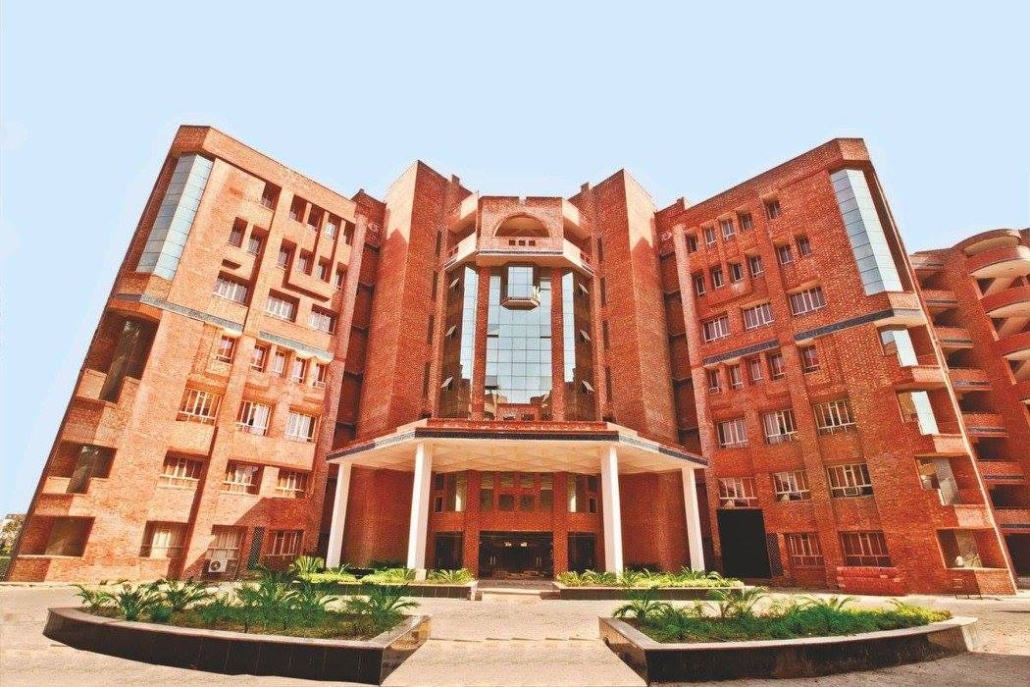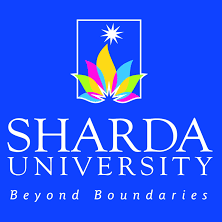
School of Medical Sciences & Research, Sharda University, Greater Noida

School of Medical Sciences & Research (SMSR) at Sharda University in Greater Noida
The School of Medical Sciences & Research (SMSR) at Sharda University in Greater Noida is a leading private medical school that is renowned for its cutting-edge facilities as well as its high academic standards. SMSR offers a variety of undergraduate and graduate programs to equip students with the knowledge and skills necessary for successful medical careers. It was established to meet the growing demand for medical professionals in India. The National Medical Commission (NMC) recognizes the establishment because it is associated with Sharda University.
1. Programs Offered
SMSR offers a wide range of courses that emphasize both fundamental and specialized medical education.
The MBBS (Bachelor of Medicine and Bachelor of Surgery) undergraduate program: This is a 5.5-year course with an internship of one year. The fundamental medical sciences and clinical specialties are covered in the curriculum, which combines classroom instruction with clinical practice.
Postgraduate Programs SMSR offers MD and MS degrees in pharmacology, pathology, anatomy, and biochemistry, among other fields. The objectives of these programs are to provide in-depth knowledge and practical experience in a variety of fields.
Diploma Programs Professionals who want to specialize in a specific area can take short-term diploma courses in specific medical fields.
2. Fee Structure
SMSR has a competitive fee structure for a private medical school and offers scholarships and financial aid.
MBBS Costs: The MBBS program’s annual tuition varies from approximately INR 11 to 13 lakh. Hostel accommodation, laboratory fees, and examination fees are examples of additional costs.
Fees for Graduate Study: The annual tuition for an MD or MS program typically ranges from INR 8 lakh to 10 lakh, depending on the specialty.
Financial Assistance and Scholarships: Merit and financial need are considered when awarding scholarships. Students who meet the requirements can apply for financial aid to lower their educational expenses.
3. Procedure for Admission
SMSR admission is competitive and determined by performance on national entrance examinations.
Eligibility: Candidates must have a minimum of 50% in Physics, Chemistry, and Biology from their 10+2 exams.
Test for Entry: NEET-UG scores determine admission to the MBBS program, while NEET-PG scores determine admission to the MD/MS program.
Counseling: The Medical Counseling Committee (MCC) of the Directorate General of Health Services (DGHS) conducts counseling for seat allocation after candidates have qualified.
4. Opportunities for Internships and Placements
SMSR has a special cell that helps students find internships and job placements.
Internship: Students get hands-on experience in a variety of medical departments, including surgery, pediatrics, and obstetrics and gynecology, during a one-year rotating internship at Sharda Hospital.
Profession Possibilities: There are opportunities for placement in both public and private hospitals for SMSR graduates. Additionally, some enroll in research projects or pursue higher education.
Cell of Placement: To help students become more employable, SMSR has a dedicated team that offers career counseling, internship placement, and training in soft skills.
5. Rankings and Recognition
SMSR has a strong reputation among Indian medical schools.
Accreditation: SMSR adheres to national standards for medical education and training, as recognized by the National Medical Commission (NMC).
Affiliation: SMSR is a part of Sharda University, which is well-known for its academic excellence in a variety of fields.
Awards: For its contributions to medical education, research, and community service, SMSR has received numerous awards.
6. Infrastructure for the Campus
The SMSR campus was designed to provide a cutting-edge learning environment.
Academic Divides: SMSR has lecture halls, labs, and tutorial rooms that make learning more comfortable. Audio-visual aids allow for interactive learning in lecture halls.
Library: The library is well-stocked with thousands of books, journals, e-books, and research materials to meet the academic requirements of faculty and students.
Laboratories: The anatomy, biochemistry, pathology, and other specialized labs in SMSR provide students with hands-on experience.
Housing and a Hostel: Hostels on campus offer comfortable housing with essential amenities like dining halls, Wi-Fi, and recreational areas.
Sharda Clinic: The teaching hospital for SMSR is the 900-bed Sharda Hospital. The hospital provides students with exposure to a diverse patient population thanks to departments that span all major specialties.
7. Workforce and Instructing Staff
SMSR flaunts a profoundly qualified workforce with broad involvement with the scholarly community and clinical practice.
Proficiency in Teaching: At SMSR, professors, associate professors, and assistant professors hold advanced degrees and actively participate in mentoring, research, and clinical practice.
Mentorship for Students: Faculty members are approachable and offer individualized mentoring to help students plan for both their academic and professional lives.
Methods of Teaching: Case-based learning, group discussions, practical sessions, and simulations are just a few of SMSR’s teaching methods, which include both traditional and contemporary approaches.
8. Understudy Life and Extracurricular Exercises
SMSR urges understudies to participate in extracurricular exercises to foster balanced characters.
Cultural occasions: SMSR celebrates festivals and cultural events to foster student unity and cultural diversity.
Recreation and sports: The institute has facilities for basketball, badminton, cricket, football, and other sports to keep students active.
Associations for students: Students can learn leadership, social responsibility, and teamwork skills through various clubs and societies.
Community involvement: Students have the opportunity to serve underprivileged communities while also gaining practical experience through health camps and awareness programs organized by SMSR.
9. Research and Development
Research is an important part of SMSR’s mission to help advance medicine.
Labs for Research: The institute has labs specifically set up for microbiology, pharmacology, and pathology research.
Research Opportunities for Students: Research projects are encouraged for students because they help them develop analytical abilities and contribute to medical science.
Collaborations: Students are able to participate in interdisciplinary research and global learning opportunities because SMSR collaborates with institutions both domestically and internationally.
10. Alumni Network
The SMSR alumni network helps graduates and students alike succeed in the workplace.
Mentoring Services: Alumni frequently visit the campus to offer current students advice and mentoring.
Organizing Valuable open doors: Student career development is aided by alumni networking events, which allow students to connect with industry professionals.
Career Assistance: The alumni network frequently contributes to the creation of internship and job opportunities for recent graduates.
Address and Contact Information:
School of Medical Sciences & Research (SMSR) Sharda University, Knowledge Park III, Greater Noida, Uttar Pradesh – 201310, India
Conclusion:
The School of Medical Sciences & Research (SMSR) at Sharda University is well-known for providing comprehensive medical education and training. SMSR’s curriculum meets the needs of the healthcare industry by combining academic rigor with clinical experience. Students benefit from an enriching educational experience thanks to the institution’s infrastructure, highly qualified faculty, and modern facilities. SMSR contributes significantly to the development of medical education and healthcare services in India because it is a medical school that is dedicated to research, community outreach, and holistic development.
Courses/Programs
| Serial# | Title | Estimated Cost | Program type |
|---|
